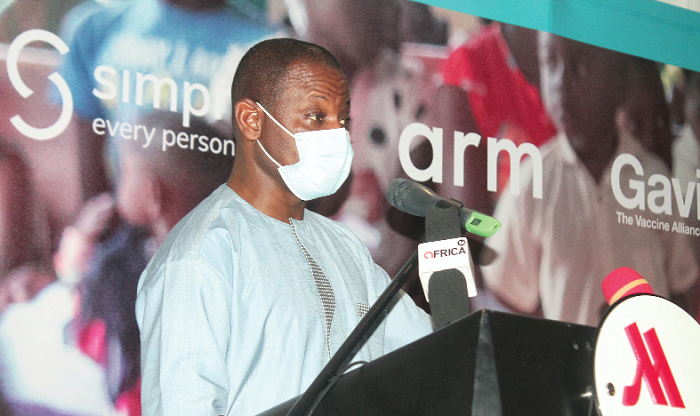
Govt explores biometric means to deliver COVID-19 vaccines
The government is exploring the use of biometric solutions to ensure the effective deployment of COVID-19 vaccines and enhance the country’s healthcare delivery system.
The Ghana Health Service (GHS) has therefore engaged a United Kingdom (UK)-based technology firm, Simprints, which focuses on improving the performance and quality of health systems with the use of technology, to assist the country in that regard.
Workshop
The Director General of GHS, Dr Patrick Kuma-Aboagye, who made this known at a workshop, said digitisation was an important tool for the government to adopt in an effort to ensure efficiency in the health sector.
He said the integration of biodata into the country’s health system would help healthcare providers to reach persons in hard-to-reach areas for health care.
The move, he said, would also complement the government’s effort in improving healthcare delivery by leveraging digitisation.
He noted that the technical teams of the GHS and Simprints would discuss and develop strategies on the use of biometrics for vaccine delivery.
The process would be piloted soon before a subsequent nationwide rollout, Dr Kuma-Aboagye said.
Protocols
Dr Kuma-Aboagye said as the country had recorded a new strain of COVID-19, it was necessary to enhance the safety protocols which included frequent handwashing, wearing of nose mask and avoiding mass gatherings, among others.
“The percentage of people who fall sick from the new strain is high and so we must be cautious in applying our protocols to ensure that people do not lose their lives from this.
“We need to change our behaviour on some of the things we do by institutionalising these protocols, even our building code, availability of water for people to wash their hands before they enter your house, and at workplaces where we can ensure that we do not go back to crowding, provision of sanitation equipment that is needed to provide appropriate hygiene for all at work,” he said.
He said the adoption of new behaviours such as wearing of nose masks in the advent of COVID-19 presented an opportunity to institutionalise such hygienic protocols and adopt them as the new norm.
“It is because of the few disease outbreaks that we have experienced in the sub-region like cholera but it is about time we started institutionalising them to be part of our practices built in our world to protect everybody”, he said.
Effectiveness
For his part, the Chief Delivery Officer of Simprints, Mr Stephen Taylor, said the GHS was one of the pioneers using technology in tackling the COVID-19 pandemic in the West African sub-region.
He said Simprints would work with the GHS to build a robust healthcare system that would survive the test of time.
The company, he said, would follow the GHS’s design and specification to come out with the best biometric solutions.
“Biometrics have proven to be life-saving and cost-effective to help with vaccination programmes,” he said.
